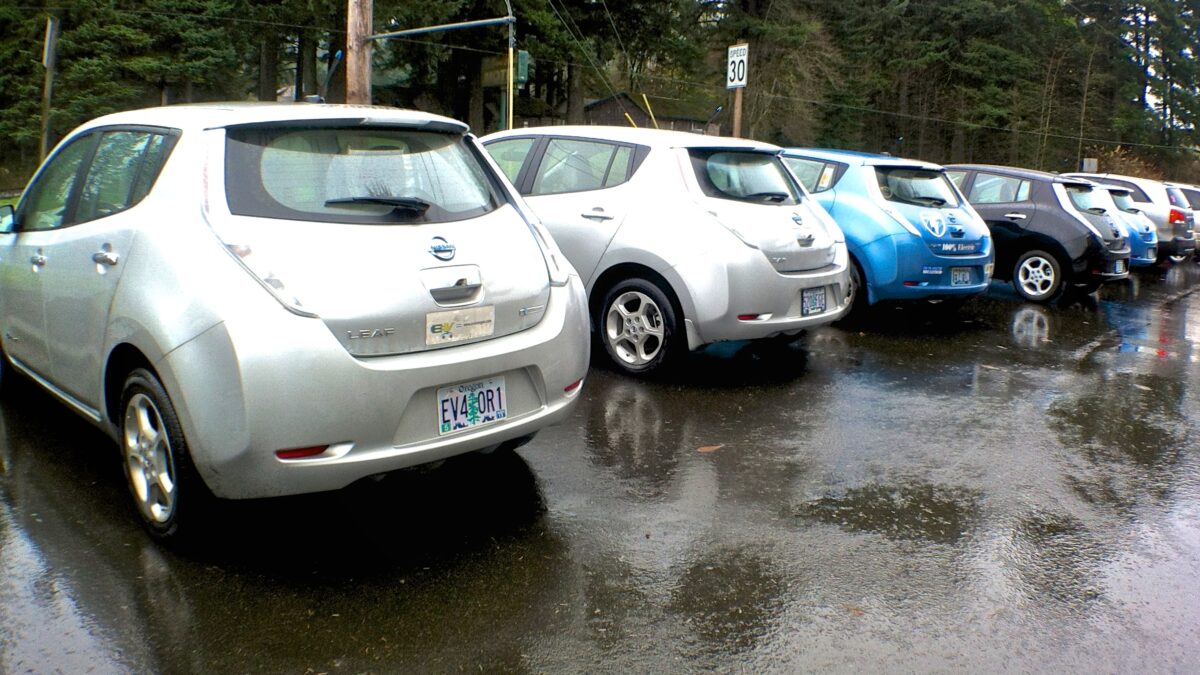
While politicians know voters aren’t buying climate hysteria, The New York Times opinion section disregards its own news section to hype it as a cause of hurricanes.
For many liberal journalists, it’s something of a puzzle. Handed what they consider a golden opportunity to use hurricanes Harvey and Irma to pound President Trump and conservative Republicans for their views on climate change, as Politico noted this week, most national Democrats decided to pass.
There are a number of possible explanations. One involves the dilemma of the many red-state Democrats up for re-election next year, especially in coal states. There’s also the possibility that some actually agree with leading Republicans that seeking to politicize disasters while people in Texas and Florida are still dealing with the aftermath of the storms is in bad taste and bad politics.
There’s another possibility. Some Democrats may have read The New York Times’ analysis of the connection between hurricanes and climate change and realized that what scientists know about the subject is a lot less than what they don’t know. Although the article strained to obscure what most experts were saying, the bottom line is that former Vice President Al Gore’s famous predictions of an increase in massive storms due to global warming isn’t backed up by the evidence.
Do NYT Columnists Read the NYT?
Yet what is astonishing about the national conversation about climate change after Harvey and Irma is that a definitive article in the flagship of liberal journalism had no effect on articles subsequently published on the subject in the same newspaper. While most congressional Democrats were holding their fire, some of the paper’s most prominent opinion columnists were not merely ignoring the same lack of evidence their news section had reported but taking it as a given that proof of the connection existed.
I speculated here last month that had a Republican used the same cautious language about the causation of hurricanes used in the Times news report, that would have been enough to get him or her labeled a “climate denier” by the Times editorial page. But after reading Paul Krugman and Nicholas Kristof’s screeds claiming only fools or liars could deny that global warming incontrovertibly caused Harvey and Irma, it’s possible that’s what they think about Times science writer John Schwartz, who was responsible for the paper’s cautious exploration of the issue.
Krugman speculated that Republicans were reluctant to buy into global warming theories because they are natural consumers for “tin-foil hat conspiracy theories” and inherently hostile to science (or at least as long as it is not science related to unborn infants and their survival rates outside the womb — a no-go zone for liberals) because of their lack of intellectual capacity.
Kristof, as is his wont, took a slightly more measured approach to his attempt to ignore Schwartz’s analysis. Instead of addressing the lack of evidence for the theories, he cherry-picked quotes and statistics to back up the assumption that hurricanes are more frequent and more devastating as a result of warming. Yet he never mentioned the fact that Harvey was the first storm of that strength to hit the United States since Katrina in 2005. His conclusion was that the link between Harvey and warming is as strong as that between smoking and lung cancer and as obvious as a solar eclipse.
The Science Is Indeed Not Settled
Since the planet has warmed and cooled several times during the course of the last few thousand years of recorded history, climate change is not a fairy tale. But the connection between human activity and warming is still a function of computer models rather than proof.
Evidence about the numbers and strength of hurricanes causing warming is even more flimsy. The best warming activists can do is to say that warmer water causes more rain and hope that will be enough to convince people that Harvey’s unusual volume of rainfall is Gore’s prediction come true. But water in the Gulf of Mexico is always warm and the rarity of such storms in the years since that prediction was made makes that a thin reed on which to base the kind of abuse Krugman and Kristof are flinging at conservatives.
Coastal elites do buy into environmentalists’ broad assumptions about the climate and hurricanes and reflect the attitudes of Krugman and Kristof. To this group, being asked to provide evidence for this theory is a question only an idiot would pose. But if most Democrats were slow to play the climate card against Trump and other Republicans it may be because they are aware that most Americans are deeply skeptical about these lazy assertions.
As much as conventional wisdom about warming is treated as gospel in popular culture and the editorial pages of liberal newspapers, the deeper one digs into the research about hurricanes, the more it is clear that, at best, we simply don’t know whether such a connection is sound science.
Democrats who need to seek the votes of voters who are not members of the Times editorial board are right to be cautious. As easy as it is to make fun of Trump and some of his comments about warming and other subjects, if even a Times science writer knows enough to hedge his bets, Democratic politicians are wise to follow that example rather than heed the rash claims of the Times op-ed page.









